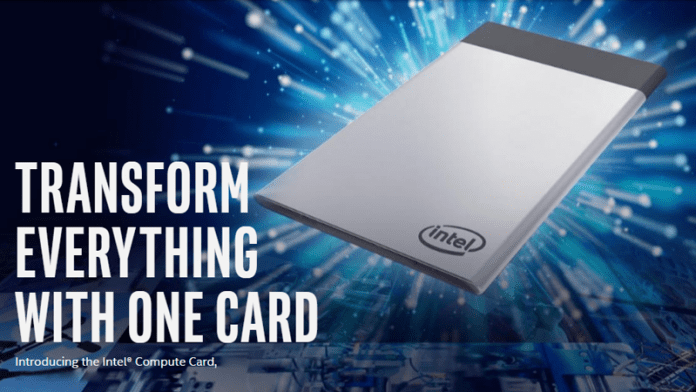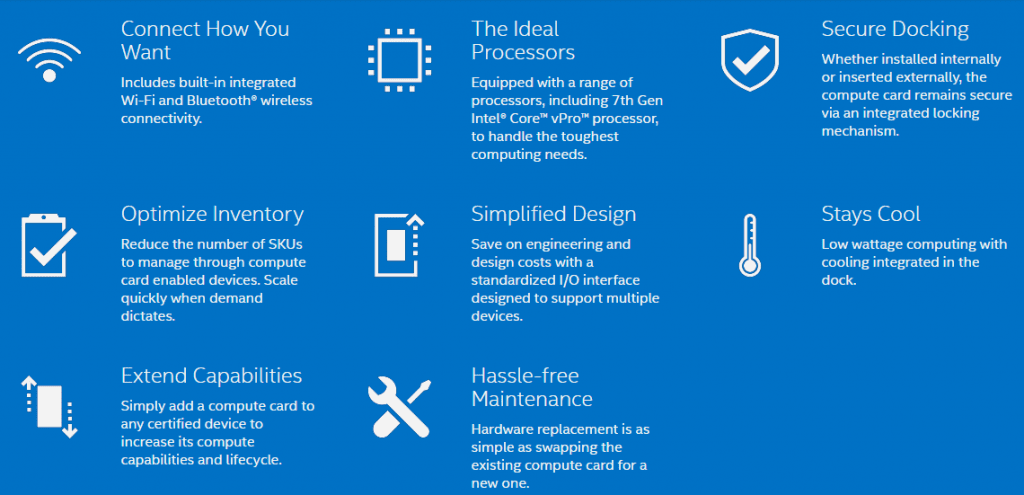The advance of miniaturization and low consumption has allowed us to install computers almost anywhere. By this, I do not mean just DIY projects based on platforms like the Raspberry Pi, but also classic appliances. Refrigerators, washing machines, air conditioning systems everything which is connected and is “intelligent” in some way. Now, such intelligence depends on good software and the hardware that is up-to-date. Unfortunately, one of the first things that get lost with more integration is the expandability, but this does not have to be that way. After exploring the concept of ultra-compact computers with the Compute Stick, now Intel introduces the Compute Card. The card measures 95 millimeters long by 55 wide, and just 5 millimeters thick. Inside we find a complete computer, based on the latest chips of the seventh generation Kaby Lake CPU, GPU, motherboard, storage, with its RAM, wireless connectivity via WiFi, and passive cooling.
Intel representatives indicated that the maximum TDP for the processor in a Compute Card is six watts, allowing us to imagine chips like the Core m3 and m5 of ultra low power. The main interface of the card is a variant of USB Type-C port called “USB-C Plus Extension,” which in addition to providing access to the USB bus, also does the same with the PCI Express bus, and HDMI/DisplayPort outputs. From a business perspective, it makes little sense to see the Compute Card as a replacement Compute Stick and pointing to two different markets, but that seems to be the position of Intel. In fact, the Compute Stick will be officially retired in 2019, which partly confirms that never won the necessary land. One of the most important aspects that should be solved with the Intel Compute Card is loading software. Replace cards in televisions and washing machines will not be so complicated, but it is logical to assume that manufacturers will want to make different updates. So far, Intel just said that the Compute Card will have compatibility with Windows and Linux. The rest of the details will be released in June.
Δ



